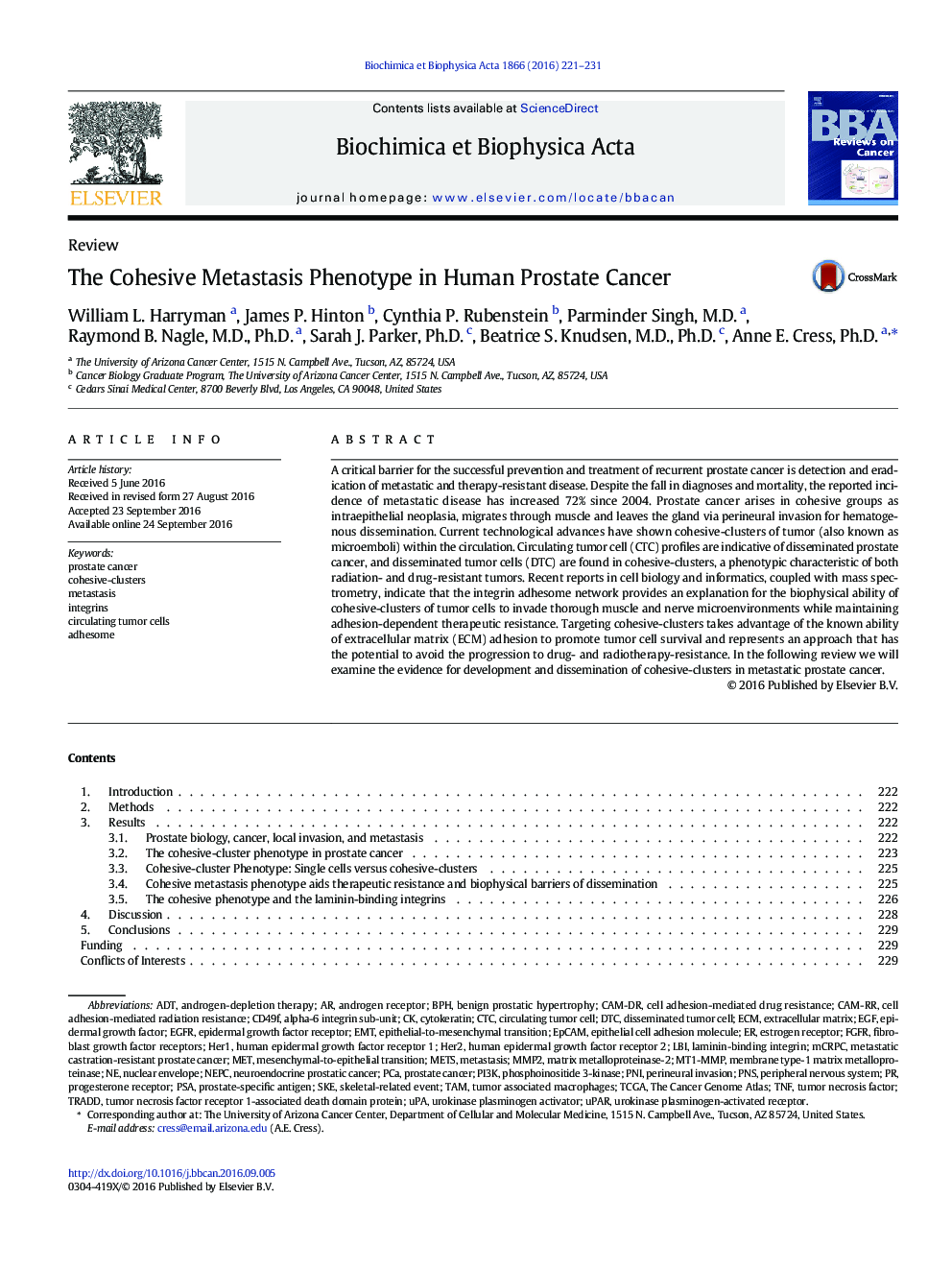| کد مقاله | کد نشریه | سال انتشار | مقاله انگلیسی | نسخه تمام متن |
|---|---|---|---|---|
| 6481813 | 1401402 | 2016 | 11 صفحه PDF | دانلود رایگان |
- The cohesive cluster phenotype is prominent in primary and metastatic human prostate cancer.
- The cancer cluster is in part dependent on adhesion molecules, a targetable phenotype independent of genomic heterogeneity of constituent cells.
- Targeting laminin-binding integrin cell-cell adhesion functions will disrupt cancer clusters.
- Disrupting the cancer cluster may prevent successful survival and colonization in metastasis.
- Disrupting the cancer cluster may overcome cell adhesion mediated drug and radiation resistance.
A critical barrier for the successful prevention and treatment of recurrent prostate cancer is detection and eradication of metastatic and therapy-resistant disease. Despite the fall in diagnoses and mortality, the reported incidence of metastatic disease has increased 72% since 2004. Prostate cancer arises in cohesive groups as intraepithelial neoplasia, migrates through muscle and leaves the gland via perineural invasion for hematogenous dissemination. Current technological advances have shown cohesive-clusters of tumor (also known as microemboli) within the circulation. Circulating tumor cell (CTC) profiles are indicative of disseminated prostate cancer, and disseminated tumor cells (DTC) are found in cohesive-clusters, a phenotypic characteristic of both radiation- and drug-resistant tumors. Recent reports in cell biology and informatics, coupled with mass spectrometry, indicate that the integrin adhesome network provides an explanation for the biophysical ability of cohesive-clusters of tumor cells to invade thorough muscle and nerve microenvironments while maintaining adhesion-dependent therapeutic resistance. Targeting cohesive-clusters takes advantage of the known ability of extracellular matrix (ECM) adhesion to promote tumor cell survival and represents an approach that has the potential to avoid the progression to drug- and radiotherapy-resistance. In the following review we will examine the evidence for development and dissemination of cohesive-clusters in metastatic prostate cancer.
Journal: Biochimica et Biophysica Acta (BBA) - Reviews on Cancer - Volume 1866, Issue 2, December 2016, Pages 221-231
